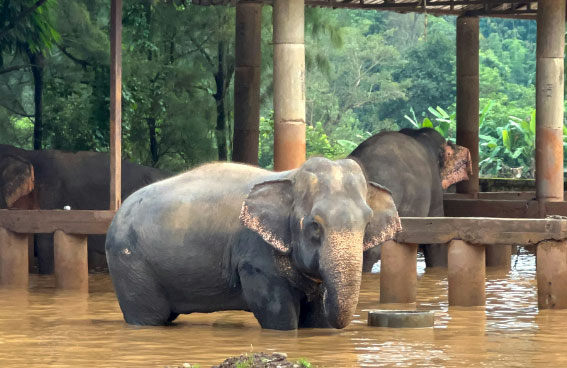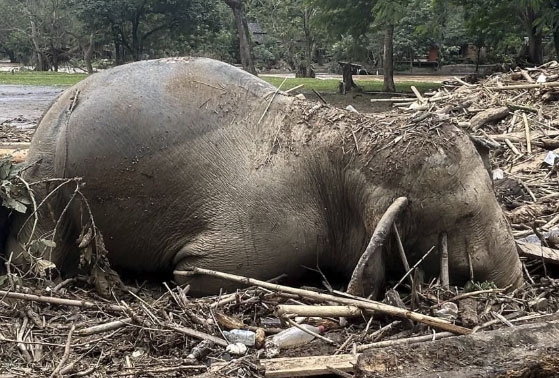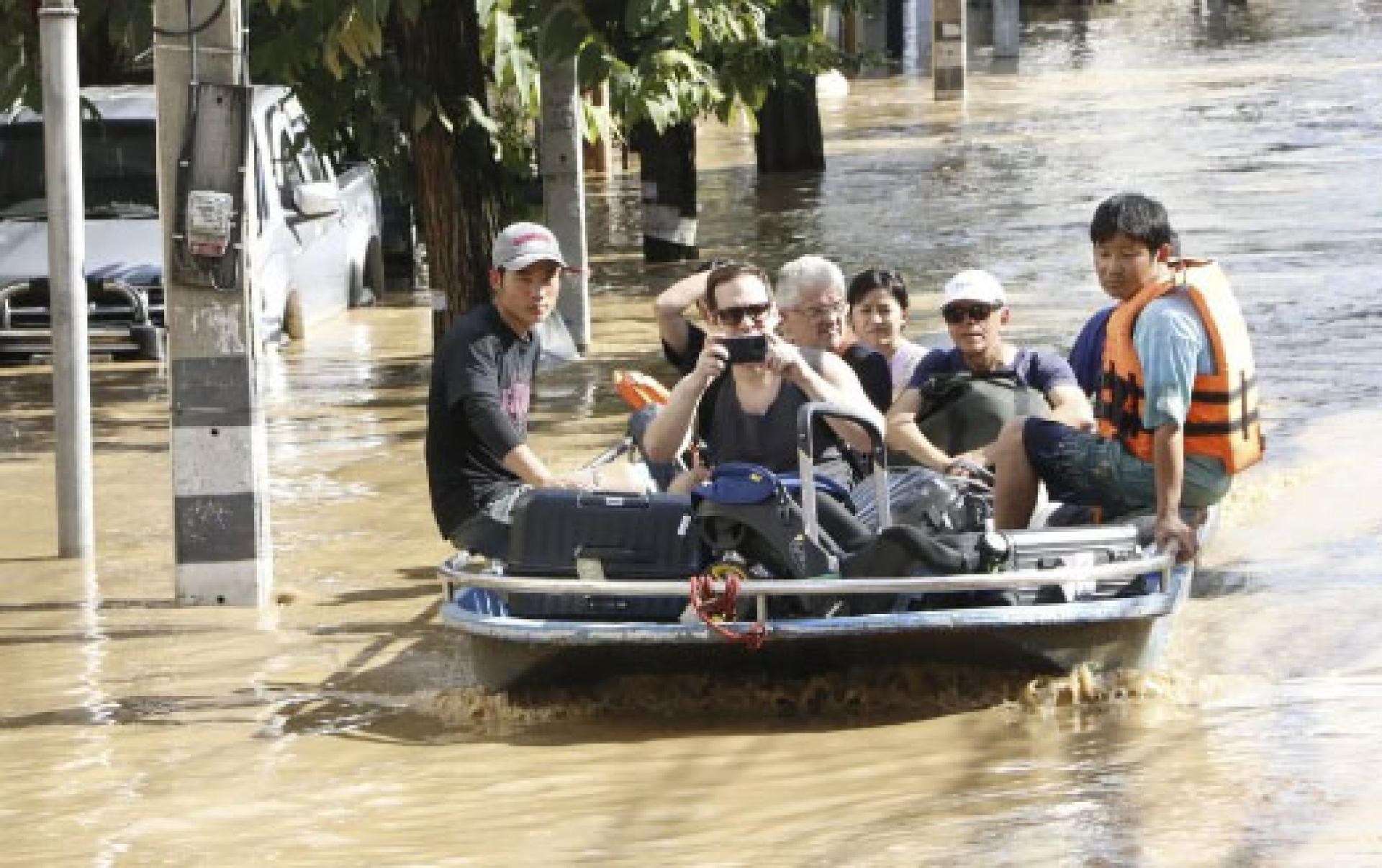On October 5th, the Thai Ministry of Tourism and Sports announced that the famous tourist city of Chiang Mai is experiencing the worst flooding disaster in 50 years, severely affecting multiple major tourist attractions, with over 500 tourists from various countries trapped. Recently, several areas in Chiang Mai have been flooded, with the water level of the Ping River continuing to rise in the city, causing strong currents that have toppled flood prevention sandbags, leading to many areas being submerged. Local residents have reported that such a flood has not been seen in many years, and the situation is particularly severe.
The Thai Ministry of Tourism and Sports pointed out that the stranded tourists are mostly staying at several hotels along the banks of the Ping River, unable to leave due to roads being submerged by floodwaters. Communication devices used by stranded tourists have also been affected, making it difficult to contact the outside world. Upon receiving a report from the Chiang Mai Tourism and Sports Office, the Tourism Ministry immediately launched rescue operations, using water transportation to help evacuate more than 500 tourists trapped in several hotels to safety.

Elephants in the park waiting for rescue.
In addition, the Elephant Nature Park located in Chiang Mai province has also been severely affected by the flood. Residents of Mae Taeng District are actively searching for trapped animals. Among the 126 elephants raised in the park, two elephants swept away by the flood have been confirmed dead, and locals have held funerals for these two elephants, creating a touching scene.
Mario, a Chinese resident who has been living in Chiang Mai for five years, stated that the flood has lasted about a week, with the eastern part of the old city being the hardest hit, especially the low-lying areas along the Ping River, where the deepest water can reach an adult's chest. He pointed out that tourists are mainly trapped in hotels around Chang Klan Road, and although the hotels have large vehicles to assist with travel, many roads remain submerged.

Two elephants died in the flood.
Some tourists reported that the situation near their hotel is relatively stable, with water on the road only reaching their calves last night. However, hotels and roads closer to the river are more severely affected, and today vendors within the old city have resumed business, but areas outside the city and by the river remain dangerous, and they dare not approach lightly.
The rainy season in Chiang Mai typically lasts from June to October, similar to the climate conditions in Yunnan Province, China. In 2022, Chiang Mai also experienced floods between September and October, but the current disaster is evidently more severe. The Thai Ministry of Tourism and Sports urges all tourists still stranded in Chiang Mai, especially Malaysian tourists, to evacuate the city as soon as possible. If tourists need to reach the airport, the tourist police will provide transportation services through the flooded areas.
